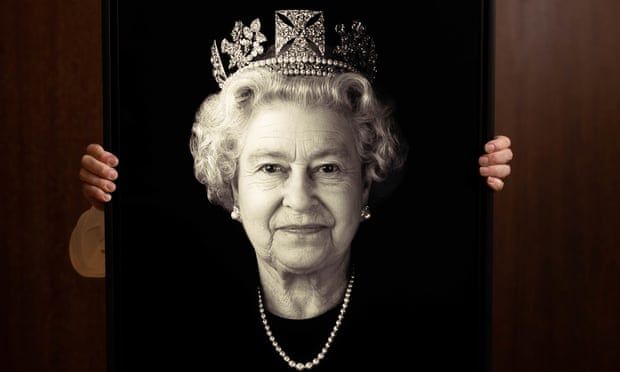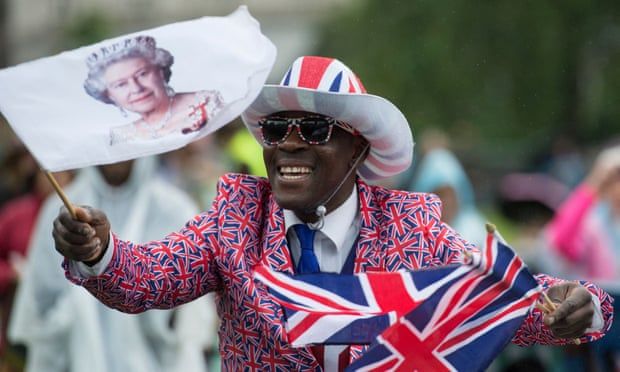
Bring on the platinum jubilee … but what will happen to Britain’s monarchy in the decades to come?
The Queen’s platinum jubilee is an unprecedented milestone in British history, with the nation geared up for the kind of mass celebrations that, in this country, are only ever witnessed at the end of world wars or to mark a key moment in a monarch’s reign.
Now 96, and clearly frail, Elizabeth II remains a highly popular monarch, admired for her work ethic and undramatic moral fibre. When compared to, say, the former King Juan Carlos of Spain, who remains ensconced in a scandal involving $100m of Saudi money, she is also the very model of political rectitude.
However, as she nears the end of her reign, her succession remains a cause for concern for monarchists and, contrastingly, hope for republicans, a sector of society that has been all but silenced by the monumental consistency of the Queen’s seven decades as head of state.
Even in recent years, with the onset of culture wars and identity struggles, the Queen has managed to remain above the fray, a figure at once remote and ever-present; someone who has appeared to transcend, or at least largely avoid, intersectional conflicts.
Yet the fact is the Windsors are a conspicuously white and privileged family, at odds with the new paradigms of diversity and equality. The next monarch may not enjoy the same freedom from social judgment that has been a reliable feature of the current one’s reign.
“You could say that the Queen has been a greater bulwark against republicanism as a woman, insofar as she performs the role of mother of the nation, an archetype that people recognise,” says one feminist royal-watcher. “It’s extremely rare for older women to be popular figures, unless their public image is de-sexed.”
For women’s rights activist, Shola Mos-Shogbamimu, the Queen isn’t a maternal figure at all. “I think she appeals to an older generation, but she missed a trick with the Sussexes, who connected with people on a personal level of understanding.”
If that was a misstep, it’s one of few she’s made. The same cannot be said of her family. A cauldron of bitter divorces and fraternal disputes, it reached a nadir last year when her second son was accused in a civil court of raping a teenager. Prince Andrew denied the claim but the Queen stripped him of the title, His Royal Highness, and he was barred from undertaking public duties. Earlier this year Andrew, who had previously vowed to fight the allegation in court, settled the lawsuit for an undisclosed sum that was reported to be up to £7.5m, on no admission of liability.
According to a recent YouGov poll conducted for the anti-monarchy group Republic, 27% of the population supports the abolition of the monarchy, with considerably higher dissatisfaction among the young (a report, Jubilee Britain, produced by the thinktank British Future shows similar results). That’s a notable jump on the 15% that has been the norm for most of this century. Even so, republicanism is the radical dog that has continually failed to bark, particularly in England.
 The royals at Balmoral. 36% of Scots want to move to a republic at the end of the Queen’s reign.
The royals at Balmoral. 36% of Scots want to move to a republic at the end of the Queen’s reign.
In Scotland and Northern Ireland, which seem likely to test the bonds of the union in coming years, a form of republicanism may gain greater momentum. That in turn could have a knock-on effect, but it would require a major upheaval to constitute any genuine threat to the monarchy.
As things stand, the only political party in parliament with an official policy of republicanism is the Green party, but that commitment did not reach its last manifesto. The last parliamentary effort to end the constitutional status of the crown was in 1996, with Tony Benn’s doomed Commonwealth of Britain bill. It was sponsored by the then backbench MP Jeremy Corbyn. But when he later became Labour leader, the most he could bring himself to say on the issue was to suggest that the monarchy needed to “improve”.
There are republican politicians, but they tend not to make a fuss about it. One is Clive Lewis, Labour MP for Norwich South and former shadow defence secretary who stood for the party leadership in 2020.
“I’m a republican with a small r,” he says. “I find it difficult to entertain the notion of being a democratic socialist, a social democrat in some ways, when you have at the heart of your political structure a hereditary multi-billionaire landowner whose children go on to become the head of state. How do you talk about equality? How do you talk about social mobility?”
 Artist Rob Munday unveils a new photographic portrait of The Queen, titled Platinum Queen: Felicity.
Artist Rob Munday unveils a new photographic portrait of The Queen, titled Platinum Queen: Felicity.
These are questions many people will have asked themselves at some point but most leave it there because they are seen, in the judgment of the former Labour leader George Lansbury, as a “distraction”. It’s almost a century since Lansbury, then an MP, opposed the abolition of the monarchy on the grounds there was more urgent work to be done.
And that has remained the progressive understanding ever since. Lewis thinks this strategy has served to sustain the status quo, allowing the “pantomime” of pomp and ceremony to conceal “a whole network of power structures and deference”.
Like Lewis, Graham Smith, chief executive of Republic, believes the succession will provoke a shift in attitudes. “For most people the monarchy is the Queen and the Queen is the monarchy, and she is fading from view,” he says. “And the alternative – Charles and William – is not particularly compelling.”
Since the abdication of Edward VIII in 1936, the royal family has been through any number of sticky patches but owing to a mixture of institutional adaptability and political inertia, as well as the Queen’s personal popularity for most of that period, it has invariably been able to ride out difficulties without them developing into existential threats.
Smith, who says Republic has 100,000 supporters on its database, argues this time it’s different. As there has never been a monarch so long in the job, her succession presents unique problems. Moreover, he maintains, young people are increasingly turning away from the idea of an hereditary head of state. “Among 18 to 24 year olds 40% want an elected head of state,” Smith says, which compares with just 37% that want to see the monarchy continue.
The problem, says one female observer who has attended Republic meetings, is that the republican movement itself is dominated by “older left-wing, middle-class white people. There is a stirring of republicanism, as we saw in the Caribbean, but the movement with Smith at the helm is about as far away from that kind of spirit as you can get.”
The other thing to say about young people is that they often start out with radical political positions, only to abandon them with age and the wilting of youthful ideals. The list of young republicans who end up taking gongs at Buckingham Palace or attending social gatherings at Clarence House is long and ever growing.
The rate of political change seldom keeps pace with the idealism of initial promises, and it’s easy to lose enthusiasm and interest as the process lumbers on. It’s 25 years since the first Blair government set out to reform the House of Lords, and there are still hereditary peers, so how long would it take to disentangle the monarch from the mysterious intricacies of Britain’s unwritten constitution?
“It would be a huge parliamentary process,” says the constitutional historian Peter Hennessy. “It would be unscrambling literally thousands of years of history. How do you unpick the royal prerogative, because the basis of British government is essentially royal power as transferred to and moderated by the houses of parliament?”
And then of course, you arrive at the problem of what would replace the monarchy. A president?
“Too many countries have got a presidential monarch under a republic,” says former Labour minister, Denis MacShane, who describes himself as “a republican on balance, even if it’s an unwinnable cause”.
He argues that the American, French and Chinese presidents are more like throwbacks to monarchs such as Charles II or George I. “Whereas,” he says, “we have gradually evolved, like the Nordics, into having a completely obedient royal family. They are decorative, no threat to anybody, and so it’s easier to rub along with them than to go through this revolutionary upheaval of fighting for a republic.”
 A royal fan in London’s Green Park during celebrations for the Queen’s 90th birthday.
A royal fan in London’s Green Park during celebrations for the Queen’s 90th birthday.
MacShane says that he has studied how states are constitutionally organised. “I came to the conclusion that countries that most informed my idea of what I might wish Britain to be like – the Netherlands, Sweden or Norway, what do they all have in common? They have a monarchy.”
Smith dismisses these arguments, citing Germany, Ireland and Iceland as nations that function perfectly well with ceremonial presidents who enjoy a limited but important constitutional role. Even in such constrained roles, however, there is the potential for political controversy. Recently the German president, Frank-Walter Steinmeier, was declared unwelcome in Kyiv, where he is viewed as a longstanding apologist for Russia.
Of course the royals are also not exactly the embodiment of neutrality their supporters like to claim. They are first and foremost couriers of tradition, carrying the weight of familial and national history on their shoulders. The recent PR disaster of the Duke and Duchess of Cambridge’s tour of the Caribbean, which often looked like an homage to colonial jaunts from unenlightened times, shows how that burden can leave the wrong impression.

Too many clumsy moves like that and the royal family itself will become the most compelling argument for republicanism. The paradox the monarchy has to finesse is appealing to the conventions of the past as a means of securing a viable future, while trying not to seem stodgily old-fashioned.
If it attempts to look too ready to respond to changing mores and fashions, it risks appearing desperate and unspecial. But if it lags too far behind it flirts with embarrassment and irrelevance. The Queen has excelled in finding the right balance, a symbol of continuity subtly adapting to the temper of the times.
So it’s no exaggeration to say that republicanism’s great hope lies in the Queen’s death or retirement. One or the other is unavoidably imminent. A seamless transition is the trick Buckingham Palace aims to pull off. But on previous form, Charles is a man with hapless tendencies and the potential to breathe new life into the republican cause.
He sees himself as a reformer, and has a track-record of interventionism, not least in “almost singlehandedly destroying modern British architecture for a generation”, as MacShane puts it. These are qualities that give rise to republican optimism. Charles’s arrival on the throne, suggests Lewis, will “open up possibilities for people to talk about what the alternatives are for our future constitution”.
 The Royal Marines band play in Redditch, near Birmingham for the jubilee.
The Royal Marines band play in Redditch, near Birmingham for the jubilee.
“It will be a big game changer,” says Smith. “Big change happens quite quickly when it does happen.” He believes that the chance of William’s son, Prince George, becoming king is “vanishingly small”.
All of this, he says, will come as a result of public demands rather than political parties. He cites Brexit as an example of a popular movement that took the establishment by surprise. Yet even that needed the parliamentary threat Ukip appeared to represent to exert pressure on David Cameron to call a referendum.
Few politicians will be in a rush to replicate that kind of divisive decision. It has been damaging enough that the country was split along leaver and remainer lines, does anyone have the appetite for a face-off between republicans and monarchists?
Outdated, undemocratic, a bizarre anachronism – all these things can be said of the monarchy, but it remains popular, in part because it has been around for so long that no one can quite imagine what the alternative would be.











